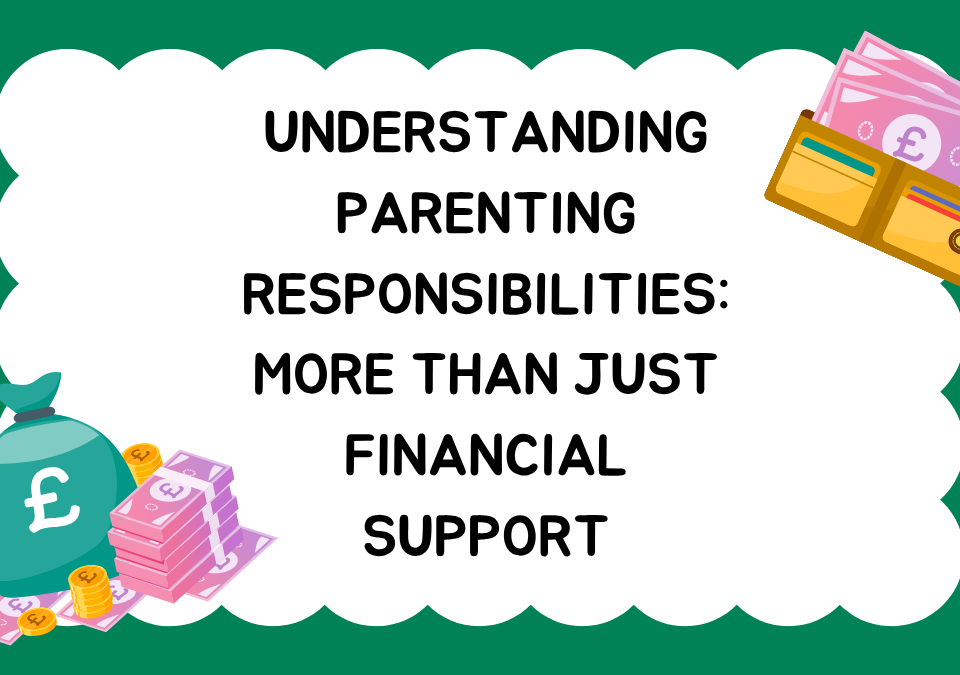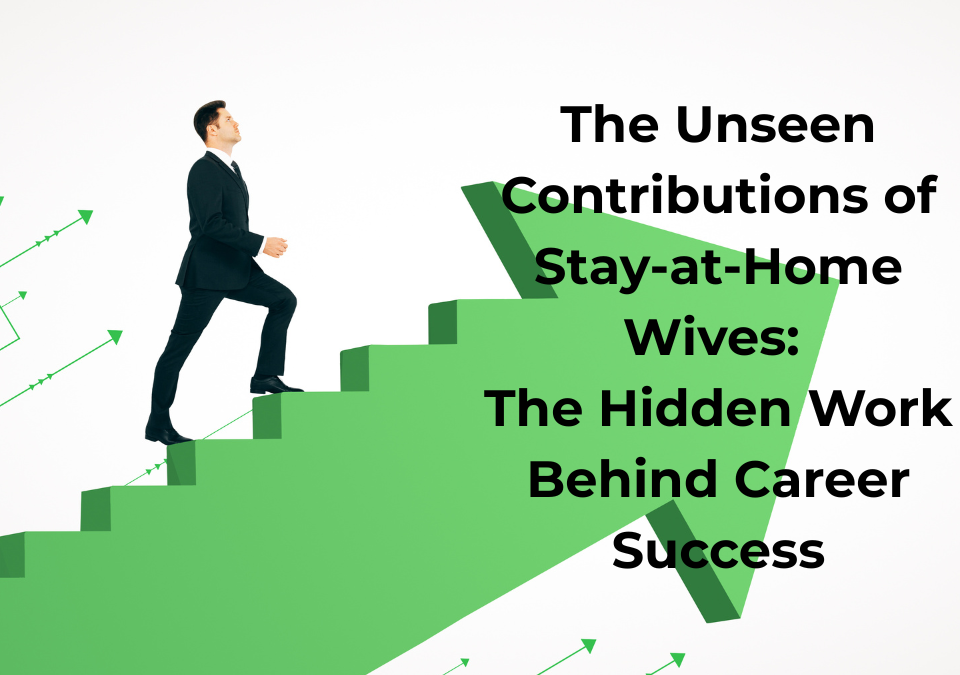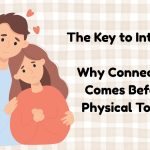
The Key to Intimacy: Why Connection Comes Before Physical Touch
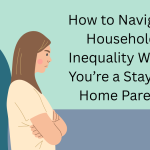
How to Navigate Household Inequality When You’re a Stay-at-Home Parent
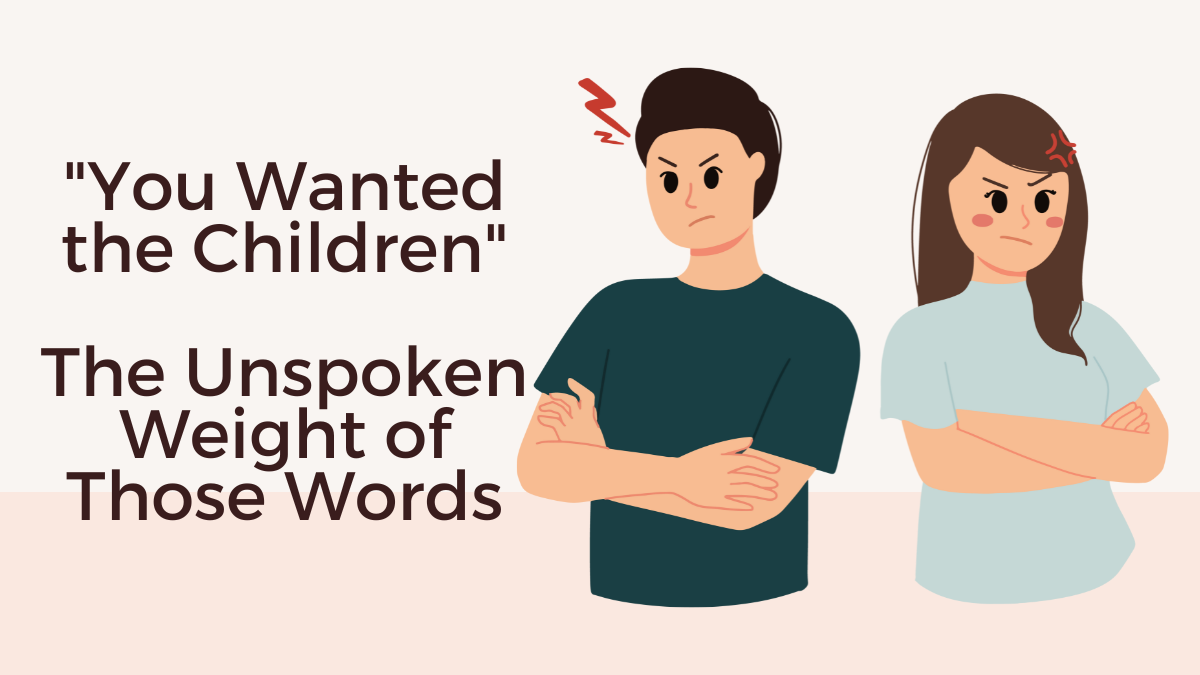
Table of Contents
“You Wanted the Children”: The Phrase That Reveals Hidden Parenting Imbalances
There are few phrases more loaded than “you wanted the children.” On the surface, it might seem like a simple statement, but underneath, it carries layers of meaning—often revealing deep inequalities in parenting responsibility, the mental load, and the division of household labour.
When one parent says this to the other, it isn’t just a reminder of past choices. It’s a declaration of detachment, a way of shifting the emotional, financial, and practical burden onto one person while excusing oneself from shared responsibility.
The Hidden Meanings Behind “You Wanted the Children”
1. “You wanted the children, but I didn’t—and still don’t.”
This is a stark admission of emotional and physical disengagement. It implies parenting was never a shared goal—just something one person pursued while the other passively “agreed.” This mindset can lead to absent parenting, where one partner sees their role as optional.
As Eve Rodsky, author of Fair Play, notes: “It’s not all on me. It’s on us. Our home and family are both of our responsibilities.” Her point underscores that parenthood, once entered into, requires equal commitment, regardless of who first voiced the desire for children.
2. “You wanted the children, and I generously allowed it—so you owe me.”
This frames parenthood as a transaction rather than a partnership. One parent positions themselves as having made a “sacrifice,” expecting eternal gratitude while avoiding accountability.
This mirrors what researchers describe as weaponised incompetence—using claims of inability or disinterest to avoid shared tasks. A 2022 Office for National Statistics report revealed that unpaid household labour in the UK was valued at £1.16 trillion, with women shouldering the majority. That “sacrifice” narrative often masks the fact that one parent is quietly doing the lion’s share.
3. “You wanted the children, so they’re entirely your responsibility.”
This treats children as a personal hobby rather than human beings needing care from both parents. It reduces the disengaged parent’s role to a title—without the work.
Rodsky warns against vague agreements like “we both do it,” calling them some of “the most toxic words” in domestic life because they lead to one partner quietly doing the planning, organising, and execution while the other stays uninvolved.
4. “You wanted the children, but that shouldn’t affect my quality of life.”
Some parents expect their day-to-day lives to remain unchanged after children, refusing to adapt routines, priorities, or finances. This echoes the “default parent” phenomenon—where one parent automatically becomes the go-to for every need, appointment, and emotional crisis.
Psychologist Darcy Lockman, author of All the Rage: Mothers, Fathers, and the Myth of Equal Partnership, explains: “Even in the most progressive marriages, mothers still do twice as much childcare and domestic work as fathers. This isn’t about preference—it’s about deeply ingrained social norms.”
What “You Wanted the Children” Really Means
1. Emotional Disengagement: “You Wanted the Children, But I Didn’t”
This version signals detachment. Parenting becomes a burden for one and an option for the other. Research shows that one in four fathers admits to feeling disconnected from parenting tasks (Fatherhood Institute, 2023). This mindset leaves one parent carrying the full weight.
2. Parenting as a Transaction: “I Allowed It, So You Owe Me”
Some parents use this as a way to demand gratitude without effort. It’s a form of weaponised incompetence, a recognised strategy to dodge responsibilities while appearing generous. The Office for National Statistics estimates that unpaid household labour amounts to £1.16 trillion annually in the UK, disproportionately performed by women.
3. Shifting Full Responsibility: “They’re Entirely Your Job”
When parenting is framed as a one-sided job, children suffer. Psychologist Darcy Lockman explains that mothers still do twice the childcare of fathers, even in so-called equal partnerships.
4. Refusing to Sacrifice: “My Quality of Life Shouldn’t Change”
Parenthood demands adjustments—financial, emotional, and physical. Expecting life to continue unchanged is unrealistic and unfair. This “default parent” syndrome is a primary cause of burnout.
Psychologist Darcy Lockman adds, “Even in progressive households, women shoulder twice the caregiving work. This imbalance damages families and children.”
The Damage of This Mentality
When one parent carries the entire weight of child-rearing, the result isn’t just personal burnout—it’s harm to the children. Kids thrive when they receive love, attention, and consistency from both parents. When one parent checks out, the other becomes overextended, and resentment can erode the family dynamic.
Reducing parenting to “you wanted the children” disregards children’s rights to be fully parented. It shifts the emotional load, logistical planning, and financial burden onto one person—often the mother—while the other keeps their freedom intact.
The Consequences of Unequal Parenting
Unequal parenting responsibility causes:
-
Emotional burnout for the primary caregiver
-
Resentment and relationship breakdown
-
Negative impacts on children, who need active involvement from both parents
Shared parenting isn’t a favour—it’s a commitment to the child’s well-being.
“Fair Play is about making the invisible work visible,” says Eve Rodsky, author of Fair Play. She stresses the importance of dividing mental load and domestic tasks transparently.
A Better Approach
Parenthood is not a favour, nor is it a chore assigned to whoever wanted it most. It’s a shared, lifelong responsibility. If one parent feels they’re “doing it all,” it’s time for transparent conversations about workload, scheduling, and emotional presence.
As Rodsky reminds us: “Every domestic task takes time, and the minutes quickly add up.”
Ignoring that truth doesn’t make the work disappear—it just makes it invisible.
Parenting Is a Shared Responsibility, Not a Burden to Assign
If you’ve heard “you wanted the children” as an excuse for disengagement, know this: parenting requires presence, effort, and commitment from both sides. The phrase is a red flag—one that calls for honest dialogue and fair redistribution of parenting roles.
Key Takeaways
-
Language matters—phrases like “you wanted the children” reveal underlying beliefs about parenting roles.
-
Unpaid labour has measurable value—over £1 trillion in the UK alone—yet it’s still undervalued in relationships.
-
Equality isn’t automatic—it requires active, intentional participation from both parents.
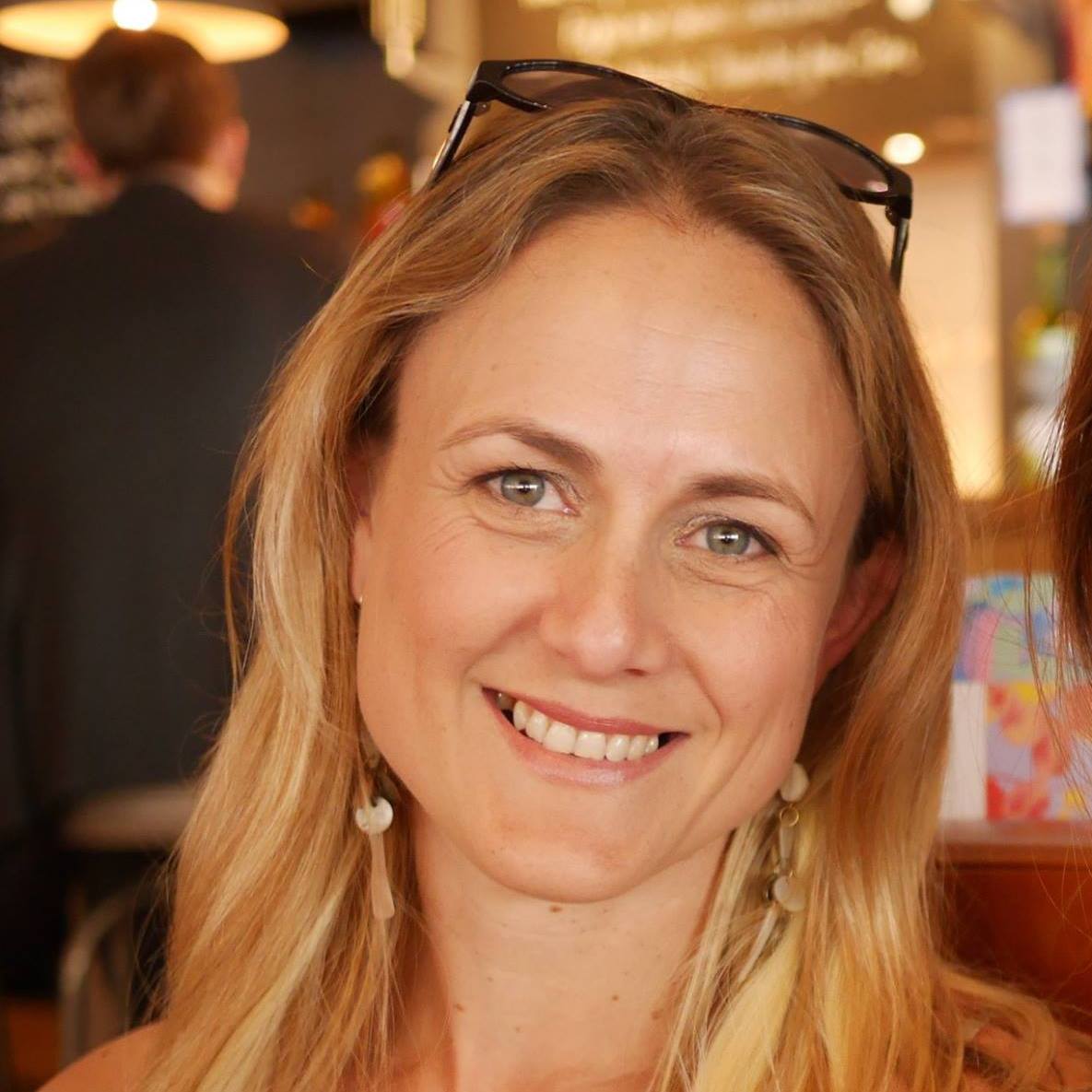
I am a preschool and primary school teacher and mum to 3 children. I have been involved in education since 1997 and have trained in a variety of educational specialist areas. It is with this expertise that I write articles to help parents and educators provide quality learning experiences for the children in their care.


